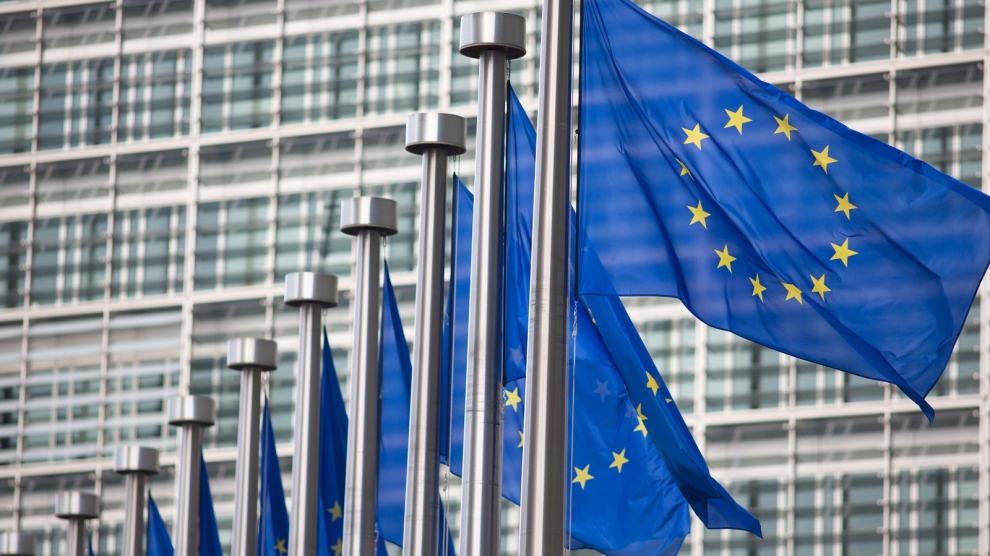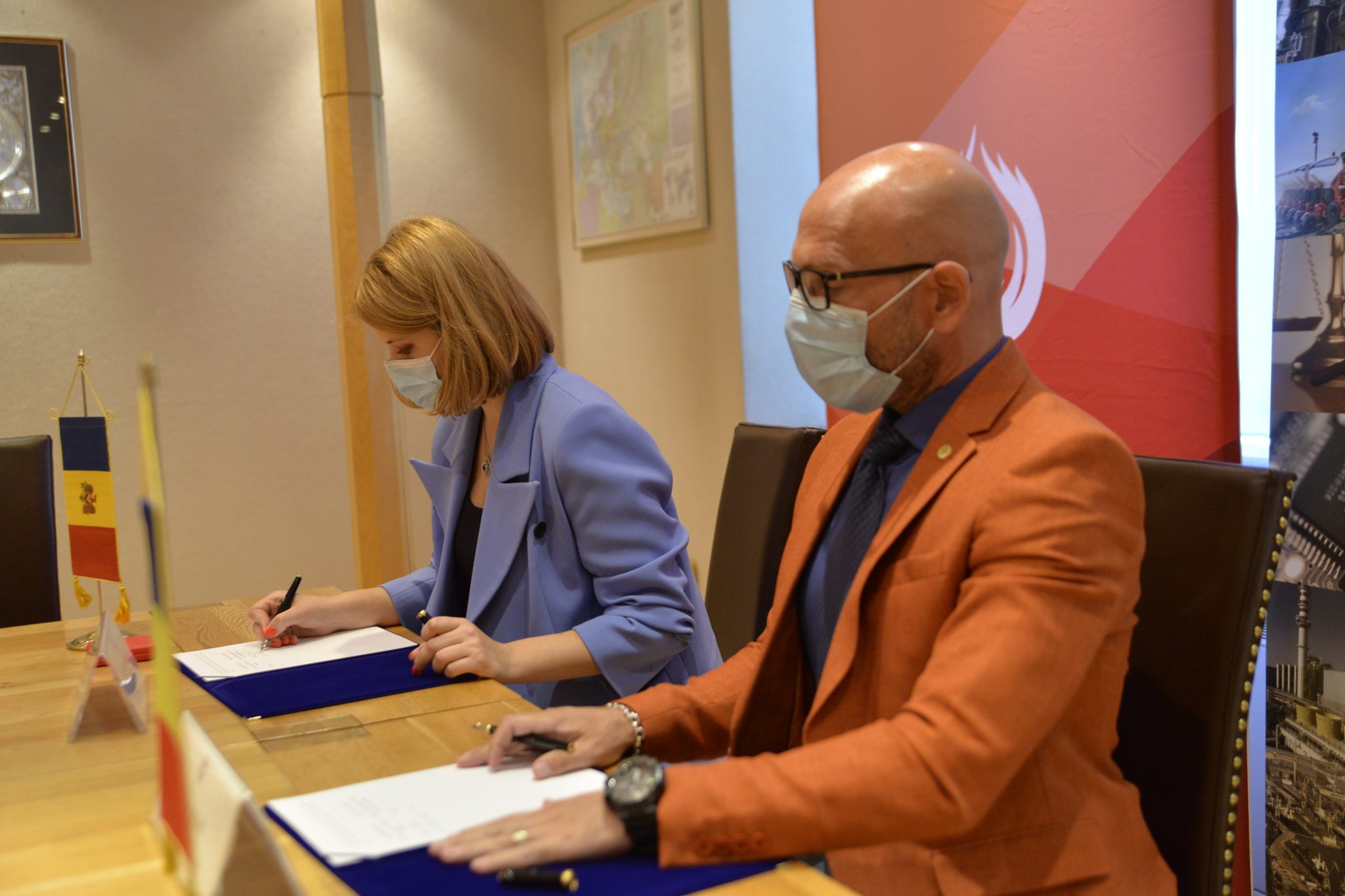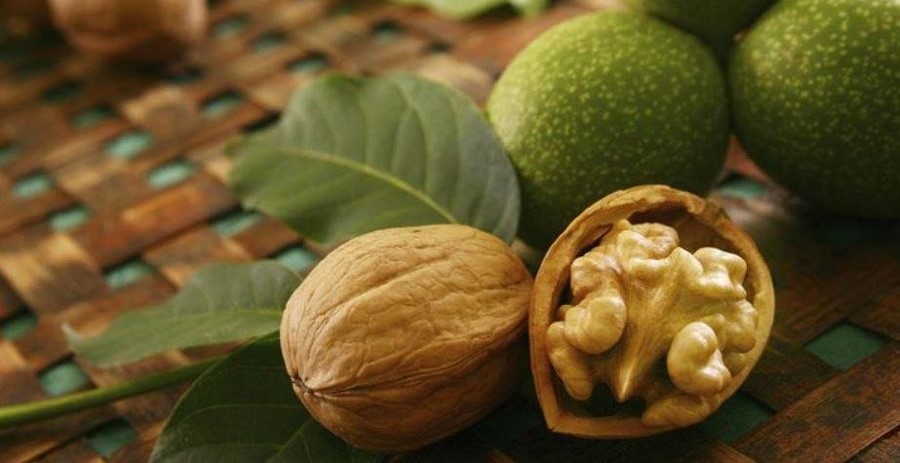Economy
Moldovan government discusses, approves over 50 important decisions
Reading Time: 3 minutesThe Cabinet of Ministers adopted a 2011-2018 anti-drug national strategy and set up a national committee on the supervision of the police reforms and an inter-institutional working group.
Prime Minister Vlad Filat chaired a cabinet meeting today. The participants in the event discussed and approved over 50 decisions, the government’s communications and press relations department has said.
The Cabinet of Ministers adopted a 2011-2018 anti-drug national strategy and set up a national committee on the supervision of the police reforms and an inter-institutional working group. The latter will include the prime minister, the interior minister, the justice minister, the finance minister, the prosecutor general and the director of the Centre for Combating Economic Crimes and Corruption (CCCEC), as well as representatives of the civil society and development partners. At the same time, the government approved a regulation on the way of providing non-refundable financial assistance to refugees and beneficiaries of humanitarian protection.
The participants in the meeting approved a national strategy for traffic security. The document sets the national objectives of ensuring the traffic security, and fits into a string of actions which Moldova has undertaken in the European integration context, including via the modernization of the transport infrastructure. Prime Minister Vlad Filat drew attention to large number of traffic accidents which took place because of the roads’ state and bad training of drivers. Filat stressed the importance to establish the tasks and powers of all the competent institutions in the field and monitor the implementation of this strategy.
The cabinet approved a series of decisions in the healthcare sector. Thus, the participants in the meeting okayed a 2011-2015 national programme on TB control, a sanitary regulation on the higher allowed limits of waste of phyto-sanitary goods from food products, vegetable and animal food for animals, etc.
The government approved a decision establishing a 130-lei quantum of social assistance for the year’s cold season and a specific plan that is additional to a 2010-2011 national plan on the prevention and combating of the trafficking of people.
The cabinet also approved financial aid worth 225,000 lei from the government’s reserve fund to the Invalids’ Society for assembling wheelchairs coming from donations. As many as 750 wheelchairs will be assembled with this money in all. The prime minister asked that the necessary money be provided for in the 2011 state budget to back disabled people, including on the concerned purposes. The assembling of a special wheelchair costs about 300 lei.
Also today, the government created the Agency for Energy Efficiency through the re-organization of the National Agency for Energy Conservation. Economics Minister Valeriu Lazar said that, under this decision, the cabinet will ensure an institutional framework to implement the legislation in force on the energy efficiency and re-generable energy sources, while carrying out the provisions of Moldova’s Energy Strategy till 2020.
Under a decision approved at the meeting, the government allocated from its reserve fund 200,000 lei to the Culture Ministry to organize and hold jubilee shows on the 40th anniversary of the "Lautarii" (The Fiddlers) National Orchestra. Under another decision, the cabinet increased the wage payment categories to the employees of the Chisinau-based Satiricus-Ion Luca Caragiale Theatre.
The government members approved the composition of a Moldovan delegation that will accompany Prime Minister Vlad Filat during his working visit to Brussels on 15-17 December 2010. Vlad Filat voiced hope that the European integration processes initiated this year will be carried through. He pointed out the positive appreciations launched by European officials for the actions taken by the Moldovan authorities within the European integration process.
The cabinet adopted a decision on the creation of units of information and communication with mass media within the central public administration authorities as autonomous structural subdivisions subordinated directly to the institution’s head. These units are meant to contribute to a more efficient communication between ministries and the public.
The project sees the approval of a framework regulation of the subdivision of information and communication with mass media from the central public authority administration. The regulation settles the task, basic duties, rights, responsibilities and the way of organizing the activity of the structural subdivision from the public administration authority that ensures the communication and informing the public about the work of the concerned authority.
The spokesman for the prime minister, Igor Volnitchi, said that the approval of the decision will help setting up an efficient system of the government’s communication, will improve access to public information, government’s interaction with the civil society and transparency in the activity of the central public administration authorities.
Other decisions adopted by the cabinet members were focused in the earmarking of financial means to victims of political repressions, providing single allocations to buy dwellings for those categories of citizens which, under decisions by local authorities, benefit from preferential credits given on these purposes, exemption the from the value-added tax and purchasing raw material for an enterprise of the Moldovan Invalids’ Society, establishing an increase to the salary of civil servants with highly risky jobs.
Economy
Moldova will receive a disbursement of 36 million euros as part of the the Economic Recovery Plan

This week, the European Commission approved the disbursement of 36 million euros in grant money for the Republic of Moldova. The announcement was made by Deputy Director-General for Neighbourhood Policy and Enlargement Negotiations at the European Commission, Katarina Mathernova, who paid an official visit to the Republic of Moldova between September 13-15, together with Managing Director for Russia, Eastern Partnership, Central Asia, Regional cooperation and OSCE, at the European External Action Service, Michael Siebert.
The EU officials had meetings with President Maia Sandu, Minister of Foreign Affairs and European Integration, Nicu Popescu, Speaker of Parliament, Igor Grosu, Prime Minister of the country, Natalia Gavrilita, as well as key representatives of Government, international financial institutions and the civil society, according to a press release issued by the Delegation of the European Union to the Republic of Moldova.
Beside such topics as the EU-Moldova relations and prospects, the priorities of the reform agenda of the new Moldovan Government, preparations for the Eastern Partnership Summit at the end of the year and the Transnistrian conflict settlement, the officials also discussed the EU assistance in support of reforms and the Economic Recovery Plan for Moldova, which was announced in June with a total EU support of 600 million euros over the next 3 years.
“The first measures under the Economic Recovery Plan will shortly materialize, with the expected disbursement of 36 million euros in grant money under budget support programmes to support the authorities’ efforts to fight against the consequences of the pandemic. Moldova can count on EU’s assistance on its path to reforms and to recovery, bringing tangible results to citizens,” Katarina Mathernova stated.
The plan is based on assistance provided by the European Union through various bilateral and regional instruments, aiming to mobilize the funds in the form of grants, loans, guarantees and macro-financial assistance.
“The Economic Recovery Plan for the Republic of Moldova involves much more, not just this financial support provided immediately. It must help digital transformation, strengthen infrastructure, energy efficiency, education and support small and medium-sized enterprises,” the EU official also said.
As Prime Minister Natalia Gavrilita informed, “The Economic Recovery Plan and the 5 flagship initiatives for Moldova in the Eastern Partnership will directly contribute to the reform and consolidation of institutions, stimulate long-term socio-economic development, bring direct benefits to citizens, and unleash new economic opportunities through promoting the green agenda and digitization. Small and medium-sized enterprises (SMEs) have been hit hard by the crisis. Promoting and diversifying access to finance and reducing collateral requirements will be essential in supporting economic operators. We are grateful to the EU partners who will launch two programs to support 50 000 independent Moldovan SMEs to adapt to the new conditions.”
President of the Republic of Moldova, Maia Sandu, welcomed the decision of the European Union to disburse about 745 million lei in grant money, as the official page of the President’s Office announced. “EU support comes after a long period of freezing of European assistance, caused by former governments. We managed to relaunch the political dialogue with the European Union and resume financial assistance. The Republic of Moldova is gradually regaining the trust of its strategic partners. This European support is also a signal of encouragement for the new Government team in its commitment to clean up the institutions, fight corruption and launch development programs in the country,” said Maia Sandu.
Photo: unknown
Economy
Romania and Moldova signed a partnership memorandum pledging to cooperate in promoting their wines

The Chamber of Commerce and Industry of Romania (CCIR) and the National Office for Vine and Wine (NOVW) of the Republic of Moldova signed, last week, a memorandum of cooperation on organizing joint promotional activities in the markets of common interest, as the CCIR announced.
China, Japan or the USA are just some of the markets targeted by the Romanian and Moldovan institutions. The memorandum also involves advertising activities for wines from common indigenous varieties, promoting the oeno-tourist region, developing a tourist route in the two states, exchange of experience, study visits, and mutual support in identifying new export opportunities. “We are very confident that this collaboration between our organizations will lead to sustainable economic growth and a higher degree of well-being among Moldovans and Romanians,” claimed Deputy Secretary-General of CCIR, Bogdan Visan.
On the other hand, Director of the NOVW, Cristina Frolov, declared that no open competition with Romania is aimed at the governmental level of the Republic of Moldova. “This request for collaboration is a consequence of the partnership principle. Romania imports 10-12% of the wine it consumes, and we want to take more from this import quota. Every year, the Romanian market grows by approximately 2.8%, as it happened in 2020, and we are interested in taking a maximum share of this percentage of imported wines without entering into direct competition with the Romanian producer,” the Moldovan official said. She also mentioned that Moldova aims at increasing the market share of wine production by at least 50% compared to 2020, and the number of producers present on the Romanian market – by at least 40%.

Source: ccir.ro
**
According to the data of the Romanian National Trade Register Office, the total value of Romania-Moldova trade was 1.7 billion euros at the end of last year and over 805 million euros at the end of May 2021. In July 2021, there were 6 522 companies from the Republic of Moldova in Romania, with a total capital value of 45.9 million euros.
The data of Moldova’s National Office of Vine and Wine showed that, in the first 7 months of 2021, the total quantity of bottled wine was about 27 million litres (registering an increase of 10% as compared to the same period last year), with a value of more than one billion lei, which is 32% more than the same period last year. Moldovan wines were awarded 956 medals at 32 international competitions in 2020.
Photo: ccir.ro
Economy
Moldova’s hope to be a top walnut exporter and its main difficulties

The Republic of Moldova has perfect weather conditions for growing walnut trees, that creating a great potential of walnut production and trade, especially on international markets, where the demand is way higher than the product’s supply. National and international experts believe that the country’s walnut production industry is on the verge of important transformations, which could lead to increased yields, quality and competitiveness worldwide.
According to authorities, Moldova exports 34-35 thousand tons of walnuts in shell, which is about 7% of the total export of fruit and 5% of the total export of horticultural products. The export value is assessed as being $120 million, that being 57-60% of the total fruit export value and about 50% of horticultural export value. Most of walnut crops are exported to the EU countries, such as France, Germany, the Netherlands, Romania and Austria. The country’s exports were among the world’s top 10 when it comes to the highest dollar value of the product during 2020.
Viorel Gherciu, Minister of Agriculture and Food Industry, pointed out that the production in the domestic walnut industry has increased by 55% in the last five years, which ranks Moldova among the main producers in the world.
“The biggest opportunity for this industry is that we are in the geographical proximity of the largest walnut import area in the world, which is the European Union, with almost 40% of total imports in the world. We are on the EU border, with privileged relations, with an Association Agreement. We already enjoy a good relationship in working with European importers, they trust our processors. A very close collaboration has been created and this is, in fact, the guarantee for those who invest in the area,” claimed the president of the Walnut Producers Association, Oleg Tirsina.
The data provided by the National Bureau of Statistics show that there are 34.7 thousand hectares of walnut plantations in the country. 20.90 hectares are represented by orchards. 75% of planted orchards are formed of old varieties trees. 30-35% of the exported production comes from orchards, the rest comes from individual farmers and plantations along the roads. This means that the quality of walnut production is not at its maximum potential. Developing commercial plantations through orchards modernization and extension of walnut varieties would provide double yield and better quality, experts say.
Governmental support in the form of subsidizing solutions, foreign investments and credit options are indispensable for the industry development. One of the financing options is the credit line of the European Investment Bank Project. Since 2016, 15 producers and processors of nuts, almonds and hazelnuts have benefited from these loans with the total amount of investments worth 8.7 million euros. A further extension of the project would provide another 60 million euros for the modernization of the horticultural sector in general and for harvesting organic walnuts in particular.
Photo: heymoldova.com





















